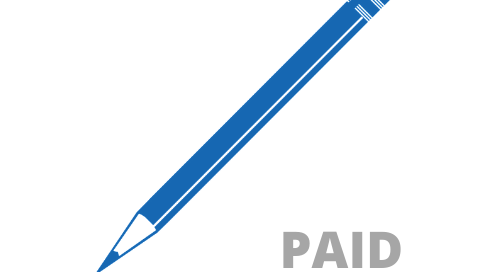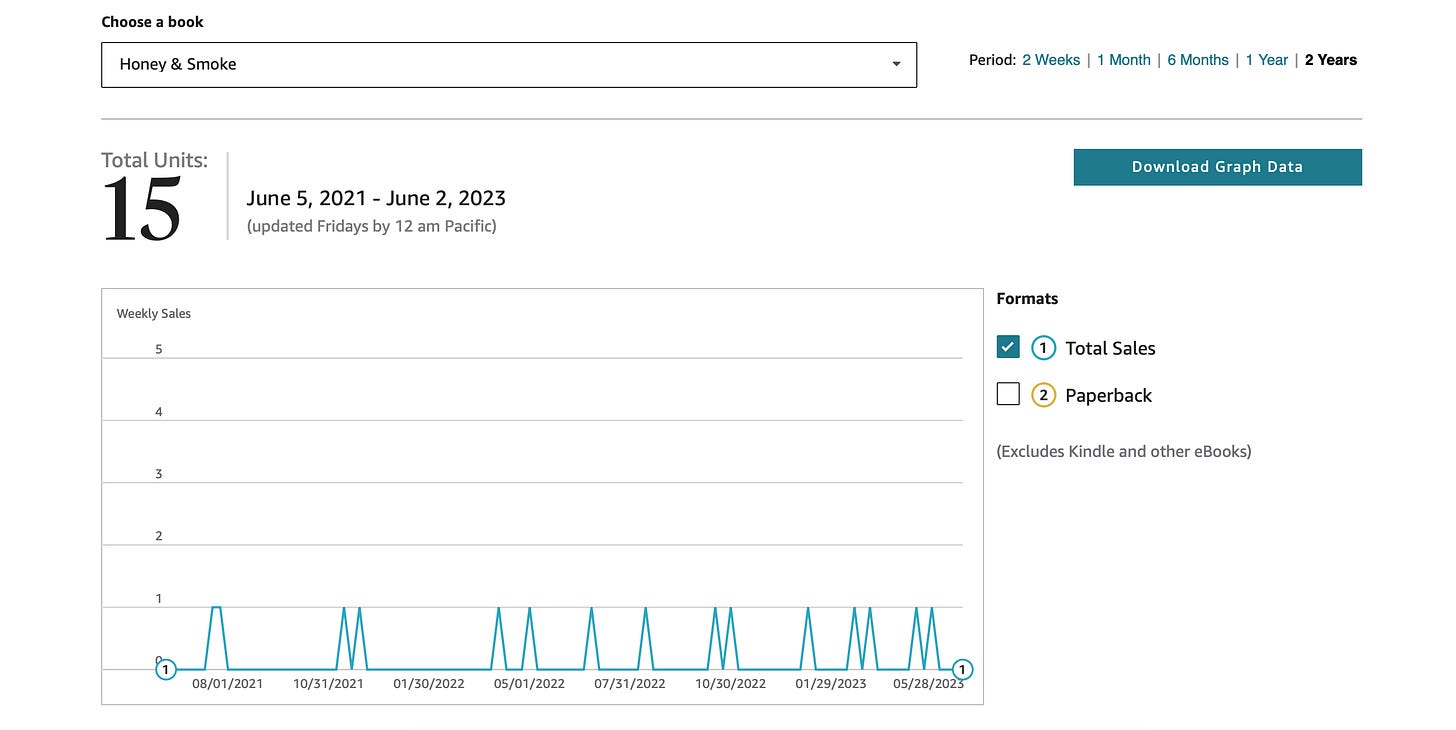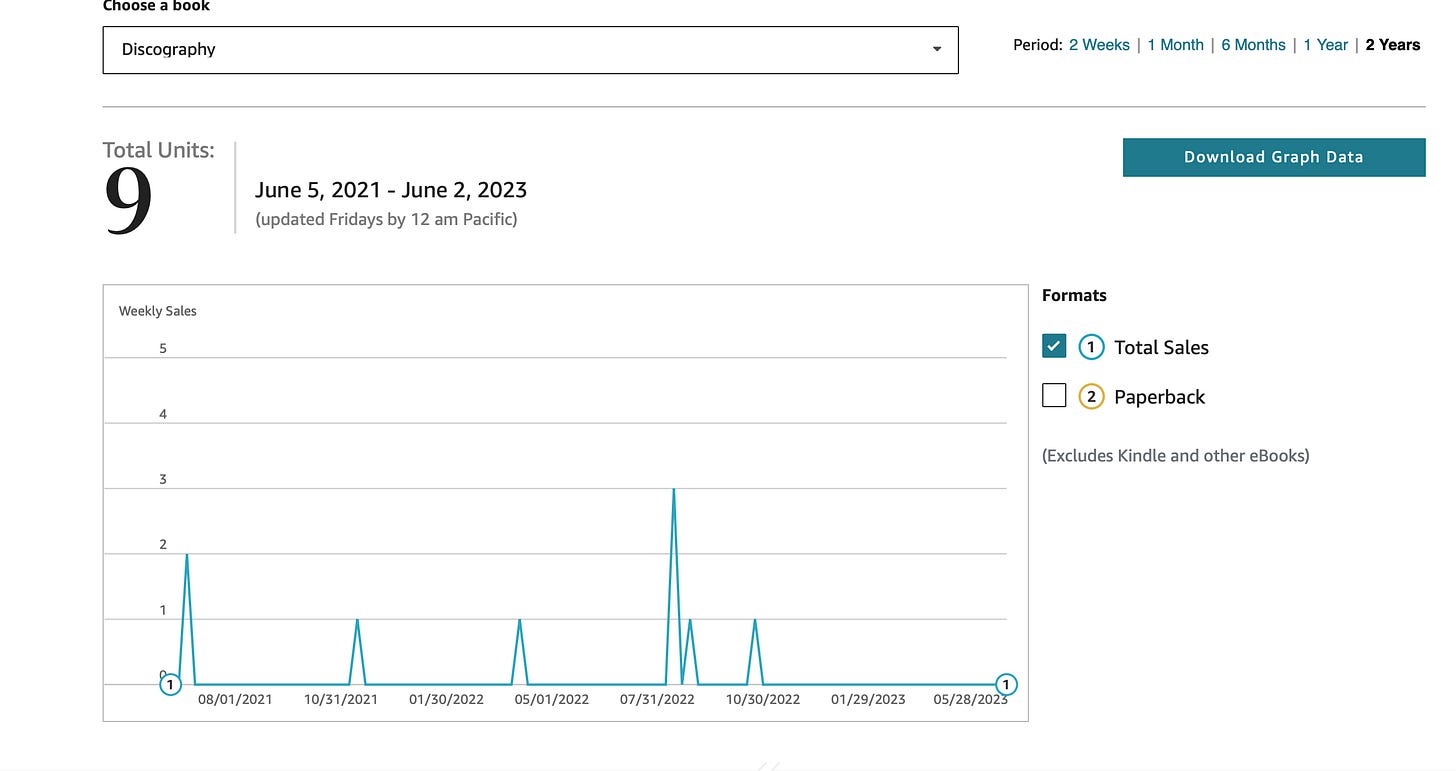How many copies do poetry books actually sell? There is no publicly available data. There is a data gathering service, Nielsen BookScan. But it’s very expensive software that only big retailers in the book industry can get, and even they admit it only accounts for 75% of book sales.
The best way to track your book sales is through Amazon Author Central, a free source that gives partial data from NPD BookScan or “BookScan.” This data lets you see how your print books are selling across the United States. NPD BookScan is available only for books sold on Amazon and no other marketplaces.
Best-selling poetry books (I am not including Instapoetry in this) include:
Amanda Gorman’s The Hill We Climb has sold more than 200,000 copies
Mary Oliver’s Devotions: Selected Poems has sold more than 50,000 copies
Ilya Kaminsky’s Deaf Republic has sold more than 10,000 copies
Danez Smith’s Homie has also sold more than 10,000 copies
Amazon Author Central only keeps track of data from the past two years. This means that those figures are sales from the previous two years.
As a way to consider these figures, I’ll use my books as a comparison. My books have sold far fewer.
Today in the Taxi (April 2002) has sold 471 copies in the past year:
Honey & Smoke (Spring 2015) has sold 15 copies in the past two years:
Discography (2002) has sold 9 copies in the past two years:
What does any of this mean? First, only books with the most ridiculous levels of exposure, prizes, reviews, and other kinds of recognition sell. Yes, Mary Oliver sells in excess of 50,000 books, but compare that to the current bestseller paperback, Colleen Hoover’s It Starts with Us, which sold more than 800,000 on its release day!
Markus Dohle, the head of Penguin Random House, said: “Everything is random in publishing. That’s why we have that name. So the founder thought: Everything is random. Success is random. Best sellers are random. So that’s why we are the Random House.”
During last year’s trial of Penguin Random House trying to buy Simon & Schuster, testimony from Penguin Random House management revealed that only 35% of books they publish are profitable. Not only that: only 4% account for 60% of their profits.
I’m proud of the way Today in the Taxi has been received, and 471 copies in a year is nothing to sneeze at, either. But everyone with a manuscript needs to be realistic. There simply is a very small readership for any kind of serious poetry.
To be involved with poetry—to write and potentially publish poetry—you have to do it for love. If you want to make money, then write a romance novel.
Small, independent, and university presses that publish poetry do it out of love. They typically don’t even break even. The distributor and booksellers also take their percentages. This is a reprieve from capitalism which is antithetical to poetry.
About Sean Singer








I'm so grateful for this post, Sean. Thank you for being frank and transparent about the economics of book sales. It's important to note that the majority of sales for poetry books are totally untracked by BookScan, Amazon, Bookshop.org, SPD, or other services that track sales through official "storefronts" (either brick & mortar or online). When I worked for a small poetry press, I generally considered our authors to be the biggest customers because they were on the front lines, hand-selling at various readings around the country. It's often more profitable for the author as well since the author's discount from the publisher is far greater than whatever royalty rate was contracted for the book. On top of that, no direct sales from publisher to customer are tracked in these systems. Which means no AWP Book Fair sales are accounted for, nor are smaller conference sales, nor purchases through the publishers' websites. Nor are any of these latter sales eligible for royalty accrual, so the author doesn't see a dime of these sales. When we make our choices as poetry book consumers, we should consider which method best helps the author in the long term, which isn't always the most immediately profitable choice. Having accurate sales records can help a publisher take a risk on an author's next book. Yes, this happens more often in fiction and nonfiction, but I've heard agents and editors talk down on a poetry book that appears to have only sold 10-20 books through BookScan...
I am happy and proud to have each of your books in my personal library. Also, wonderful doodle here. Yours?